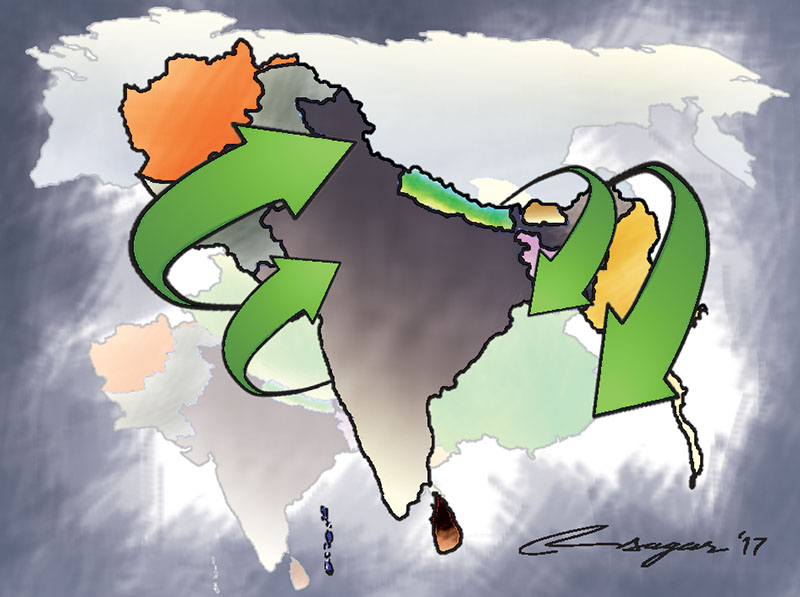How Nepal’s trade cost could be minimised
Kathmandu, January 6
The country can reduce its cost of trade through simplification in processes of import and export and reduce transport cost through effective monitoring.
A recent report jointly prepared by the Asian Development Bank (ADB) and United Nations Economic and Social Commission for Asia and Pacific (UNESCAP) titled ‘Trade and Transport Facilitation Monitoring Mechanism (TTFMM) in Nepal’ has suggested the government to set up the TTFMM institutional mechanism to monitor processes in certification, customs, transit and cargo transportation to bring down the cost of trade.
“Currently Nepal requires multiple documents for trade that essentially serve the same purpose. Hence, removing even one of such requirements can help reduce the cost and time in export,” says the report. There are dozens of requirements to export cargoes from Nepal. After the exporter gets order from the buyer, the lengthy processes for required documents result in delay in exports.
Similarly, it takes around a month-and-a-half on an average to import third country goods to Nepal, which is long when compared to other countries and it has adverse impact on the cost of production. Cost of production in Nepal is comparatively higher due to the time consumed for import of raw materials and intermediate goods.
The report shows that it takes 31 days to complete various processes for import — two days to complete the contract, 14 days to ship, and 15 days to complete payment procedures. The report has also analysed the cost of import. Transportation cost and time is higher in transit compared to importing consignments from the international market.
“The total cost for completing all trade and transport procedures from Kolkata to Kathmandu is $1,540, of which transport cost (including employment of freight forwarders) is the highest ($930). Opening a letter of credit is the second-costliest procedure ($350). Clearance of goods from Kolkata port costs $209,” as per the report.
The report has suggested institutional arrangements for aligning and harmonising the trade processes and procedures nationally, regionally, and globally.
At the global level, many countries, especially World Trade Organisation (WTO) members, are committed to implementing the trade facilitation measures under WTO’s Trade Facilitation Agreement (TFA) and at the regional level, the Bangladesh, Bhutan, India, Nepal (BBIN) Motor Vehicles Agreement has been widely regarded as a game-changer pact that has set in motion the steps to make it possible for both passenger vehicles and cargo vehicles to cross swiftly and easily from one country to another.
At the national level, a broad range of trade facilitation measures (such as trade information portal, establishment of national single window, and paperless trade) should be considered and implemented in progression. “This would make the trading environment more transparent, credible, and predictable, thereby contributing to the reduced cost of doing business,” as per the report.
The report has suggested the government to further develop electronic filing and exchange of documents, harmonisation of data and information and standardisation of documents. Effective implementation of EXIM (export and import) code, developed by the Department of Customs, would go a long way in harmonisation and standardisation of documents, as per the report.
The report also stressed for customs automation and urged expediting automated customs module. Similarly, early introduction of customs single window (CSW) will eliminate the requirement of submission of specific documents multiple times, according to the report.






